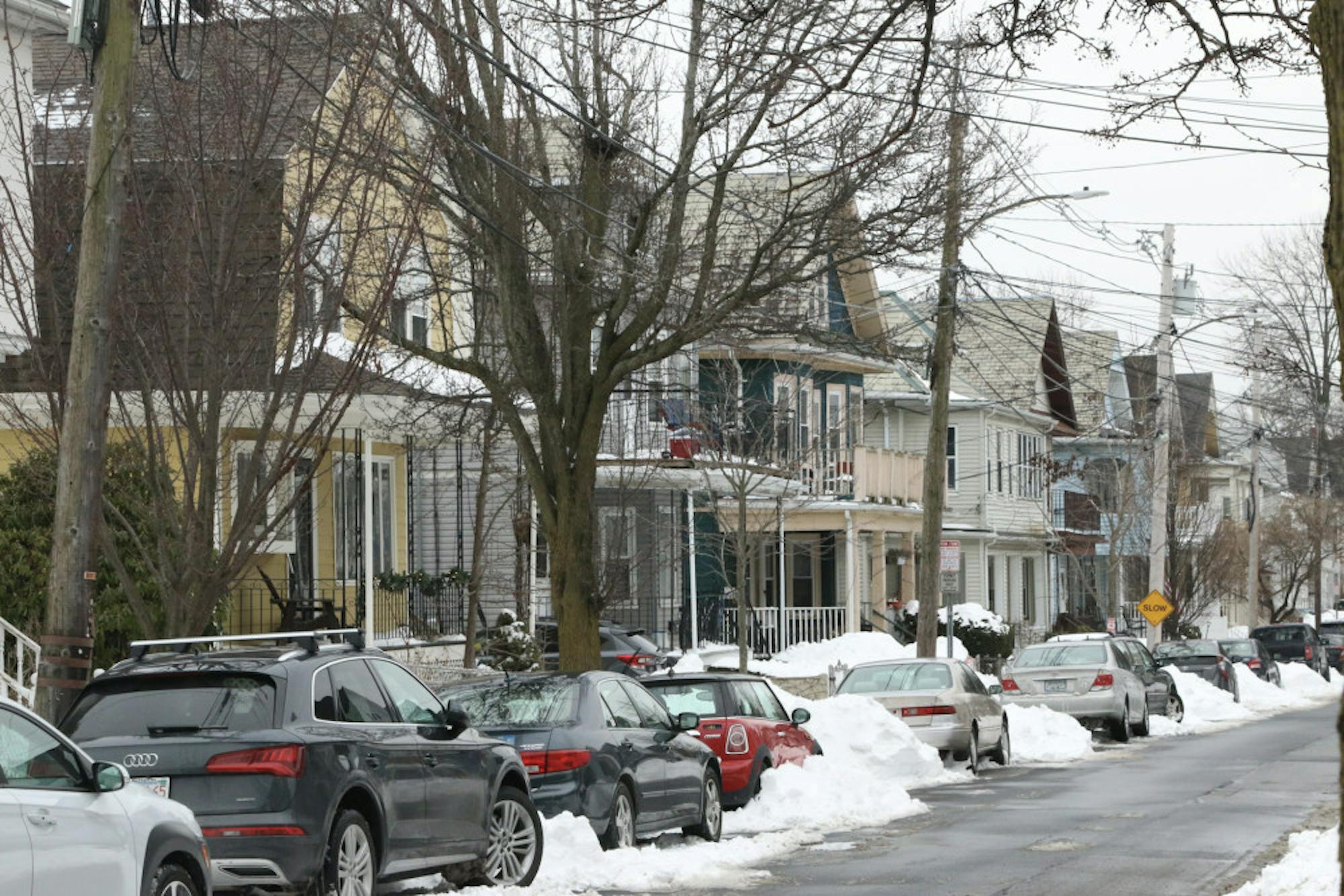Many members of the Tufts community call Somerville home, but that is becoming a reality increasingly out of reach for some within and beyond our community. With the inequities in Greater Boston’s housing supply exacerbated by the pandemic, the Somerville Community Land Trust is doing its part to strengthen housing affordability in the city, moving towards community ownership of land and housing.
A community land trust is a nonprofit organization that exists to acquire land in order to increase ownership within the community. Most of the time, and in the context of Somerville, they work to create and preserve long-term, affordable housing. CLTs are usually structured democratically and are governed by a board made up of community members. The SCLT currently has an interim board, but eventually, its board of directors will consist of one-third residents of CLT units, one-third SCLT service area residents and one-third housing experts and community leaders.
Ben Baldwin (AG’16) is a dedicated SCLT volunteer. He recounted that CLTs in the United States emerged during the civil rights era when Black Southerners living on leased land would be evicted for registering to vote. From there, he said, people got together and worked to acquire land collectively so that they could secure their voting rights without facing eviction.
“Maybe no one person could afford to buy land, but together they could,”Baldwin said. “It really does come from that kind of intersection of social justice and land [justice].”
Somerville’s own CLT, however, doesn’t trace back very far. According to Baldwin, the conversation around creating a community land trust in Somerville emerged ahead of the 2017 local elections.
Baldwin, a Tufts Master of Urban and Environmental Policy and Planning alum, wanted to lend his own expertise to the organization; at the time, he was a Somerville resident working as the operations manager for the Dudley Street Neighborhood Initiative, a community land trust in Roxbury and North Dorchester.
With the support from much of the city government, the SCLT formally launched in 2018.
Today, the SCLT is continuing to fundraise and has hired a consultant to help in its campaign. It also received seed funding from a community benefits agreement negotiated by the Union Square Neighborhood Council and plans to use that money to hire its first executive director, Baldwin said. However, most importantly, the SCLT is working on acquiring its first housing units.
In Somerville City Councilor Ben Ewen-Campen’s words, the SCLT is “sprinting” towards acquiring its first piece of land. The organization is remaining tight lipped about the details, but there is a clear sense of enthusiasm and urgency on the SCLT’s part.
“Everybody always wants things to move fast … but this is a particular[ly] strange case, which is why it’s sort of ended up in our lap,”Baldwin said.
Swift and decisive action to create permanently affordable housing in Somerville cannot come soon enough. Tufts Senior Lecturer of UEP Laurie Goldman diagnoses Somerville’s housing problem with a number of causes. Firstly, there is the problem of supply — there simply isn’t enough housing for every person who wants to live in Somerville, especially lower-income people and families. Secondly, the community actors working on building permanently affordable housing are competing for increasingly few opportunities to do so.
Ewen-Campen, who is a founding board member of the SCLT, noted that the SCLT's capacity for land acquisition is limited by the high price of land.
“I think that ... we want to get housing into the land trust however we possibly can. … We are just going to only be limited by the astronomical price of land,”Ewen-Campen said.
Baldwin echoed Ewen-Campen’s sentiment about the difficulty of acquiring land, particularly in the context of Somerville.
“I mean, just the fact that there isn’t a lot of vacant land in Somerville makes [acquiring it] more difficult. It’s all wrapped up in the problem of Somerville being a small city that’s close to Boston with cool stuff,”Baldwin said. “People want to be there. People want to live there.”
For the time being, the SCLT is currently looking at acquiring existing housing and subsidizing its affordability. They’re flexible, however, and they want to explore any ways possible to expand its affordable housing stock.
“For a smaller organization like ours, [building new affordable housing involves] a lot of risk, money, a lot of technical know-how to build from the ground up, even if you’re hiring somebody else to do it,”Baldwin said.
Above all, the organization is simply eager for opportunities.
“If there’s an opportunity for developing new housing, we’re definitely interested in that, especially if we can latch onto bigger projects — something like the Union Square redevelopment or other Green Line Extension stops,”Baldwin said.
But one aspect of the CLT that Ewen-Campen emphasizes is not just the results of stable, affordable housing stock but also of community governance.
“Once we have people living in these homes and making decisions collectively, you could certainly imagine that they will start to prioritize additional things that they want to see on the land that the land trust owns,” Ewen-Campen said. “If you look at DSNI, Dudley Square Neighborhood Initiative, for example, that is one [place] where my sense is that the residents also place a huge value on open space, community gardens, small businesses, things that really make a neighborhood.”
The land trust is only just beginning to materialize. Certainly, with housing prices in Somerville at the levels they’re at currently and with looming pressures to housing prices like the incoming Green Line Extension, the need for permanently affordable housing in Somerville will likely increase.
“There’s this famous phrase that gets used in land trusts — just like planting a tree, the best time to start a land trust is thirty years ago, and the second-best time is now,”Ewen-Campen said. “I want people thirty years from now to look back and think, ‘Oh, thank God they started this thing while they still could.’”






